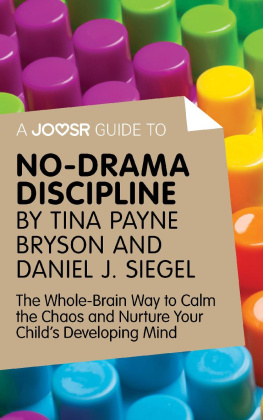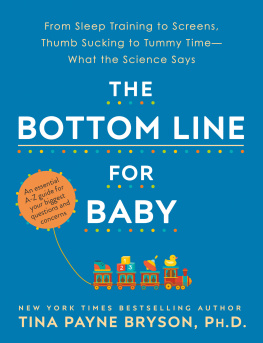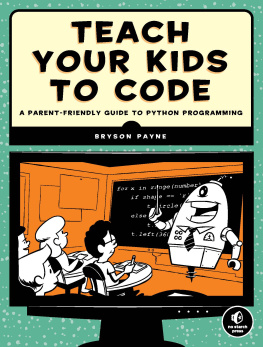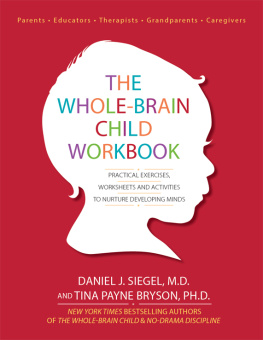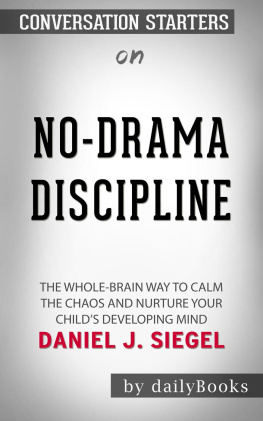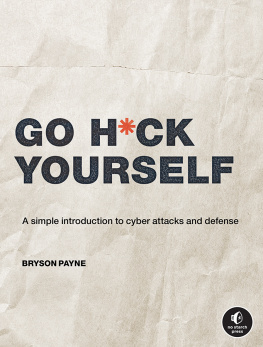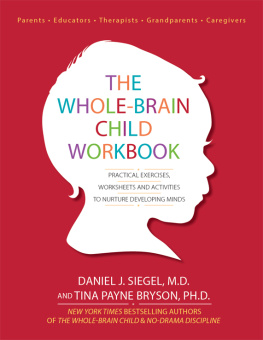Tina Payne Bryson - No-Drama Discipline
Here you can read online Tina Payne Bryson - No-Drama Discipline full text of the book (entire story) in english for free. Download pdf and epub, get meaning, cover and reviews about this ebook. publisher: Joosr Ltd, genre: Children. Description of the work, (preface) as well as reviews are available. Best literature library LitArk.com created for fans of good reading and offers a wide selection of genres:
Romance novel
Science fiction
Adventure
Detective
Science
History
Home and family
Prose
Art
Politics
Computer
Non-fiction
Religion
Business
Children
Humor
Choose a favorite category and find really read worthwhile books. Enjoy immersion in the world of imagination, feel the emotions of the characters or learn something new for yourself, make an fascinating discovery.
- Book:No-Drama Discipline
- Author:
- Publisher:Joosr Ltd
- Genre:
- Rating:5 / 5
- Favourites:Add to favourites
- Your mark:
- 100
- 1
- 2
- 3
- 4
- 5
No-Drama Discipline: summary, description and annotation
We offer to read an annotation, description, summary or preface (depends on what the author of the book "No-Drama Discipline" wrote himself). If you haven't found the necessary information about the book — write in the comments, we will try to find it.
No-Drama Discipline — read online for free the complete book (whole text) full work
Below is the text of the book, divided by pages. System saving the place of the last page read, allows you to conveniently read the book "No-Drama Discipline" online for free, without having to search again every time where you left off. Put a bookmark, and you can go to the page where you finished reading at any time.
Font size:
Interval:
Bookmark:

We really hope you enjoyed reading this Joosr summary. At Joosr, we love books and are driven by our passion to get more people reading. We also understand that in todays fast-paced world its tough to find the time to read. Thats why we created Joosr summaries, where you can get the key insights from bestselling non-fiction titles in less than 20 minutes.
Our ever-growing library of summaries covers a range of subjects, including:
- Business and management
- Careers and entrepreneurship
- Parenting and relationships
- Self-help
- Health and diet
- Popular psychology.
If you would like to find out more about Joosr or choose your next book, please visit www.joosr.com/more where you will find our full library and regularly updated special offers.
With new titles added every week, there is something to interest everyone at Joosr. On your morning commute, waiting for a friend, or over lunch, Joosr summaries fit easily into your lifeon your smartphone or tablet.
Whats it about?
Disciplining your children in order to create a happy, harmonious home today, and grounded, well-balanced adults for the future is one of the most difficult aspects of parentingand one of the main forms of stress in families.
No-Drama Discipline asks us to reconsider what discipline really means, and gives us plain and simple strategies to help us to communicate with, connect with, teach, and redirect our children. It provides insights into why disciplinary techniques such as timeouts and spanking dont work, and suggests alternatives that are not only more likely to succeed, but might also foster better relationships in your home.
Whether you are a new or experienced parent, the advice offered in No-Drama Discipline will allow you to discipline your children effectively and with compassion, taking into consideration their growing and developing brains. This is a tried-and-tested method that will cool tantrums, arguments, and upset while simultaneously nurturing your relationship with your child. Plus, it will help them to form healthy brain connections, which will lead them to become mentally healthy adults. By rethinking how you discipline your child, you can enjoy a drama-free lifefrom toddlerhood to adulthood, and beyond.
In order to discipline more effectively, we need to redefine what discipline means
For so many families, discipline means punishment. It means making your child feel bad for their behavior and hoping that this will deter the unwanted behavior in the future. Much of this method is fear based; it anticipates that a child will be scared into not repeating undesirable behaviors.
The problem with this approach is that first, it isnt a particularly effective method of discipline, and second, it can actually be harmfulboth to our relationships with our children, and also to their brain development. Rather than assume that discipline equals punishment, we could instead look to the original definition of discipline, and use this to help set us on a more gentle and constructive path.
Discipline comes from the word disciple, which means student or learner. What we are really trying to do when we discipline our children is to guide or teach them, not to punish them, and this is worth bearing in mind. While punishment may temporarily halt the behavior, it is teaching that leads to our children make more-permanent changes in attitude and to build skills that will last them a lifetime.
The basis to the No-Drama Discipline solution is to reframe the idea of discipline and to remind ourselves of the original meaning, thinking of it not as punitive, but as a loving and nurturing action that we carry out alongside our children, with their needs in mind. It is about shifting from being reactive to being responsive. Instead of reacting to whatever our child has done, we should aim to respond to their needs, reframing each incidence of discipline as a teachable moment.
Discipline means to teach or guide. We should be seeking to help our children to learn how to build relationships, rather than punish them. In other words, be responsive as opposed to reactive.
Traditional methods of discipline could be damaging your childs developing brain
Childrens brains are constantly growing and developing throughout their lives. This means that the way we discipline them has direct consequences on their brain development.
Children are born with a lower brain that is much more developed and powerful than their upper brain. The lower brain governs our strong emotions and ensures that our basic bodily functions are working. This primitive, reptilian part of the brain is reactive; it is the part that comes into play when we say that we acted without thinking. It is what informs our fight-or-flight response when we feel threatened, and it is what makes our children do things such as throw their food on the floor or scream when they do not get what they want.
In contrast to this, the upper brain controls our decision-making, planning, emotional understanding, empathy, and morals. It is more rational and allows us to think before we act so that we avoid knee-jerk reactions and impulsive behavior. This part of the brain does not become fully developed until we are in our early twenties, and it needs practice and guidance to grow strong.
A parent who is not aware of their childs developing brain not only expects too much from them, but also may not realize the damage that they are likely causing when they exact punishment. Spanking, for example, can cause significant changes to the way a brain develops. When we spank a child, we are inflicting pain. The childs lower brain is programmed to avoid pain, as pain is perceived as threat. However, the childs lower brain is also responsible for the instinct that draws them to seek comfort from their parents (or primary caregiver). Their brains become confused, as they are simultaneously pushed away from the source of the pain and yet pulled toward their biological source of comfort. This confusion causes the brain to produce the stress hormone cortisol, which is toxic to the brain and inhibits healthy growth.
Similarly, time-outs are not much better when it comes to brain development. A time-out is essentially isolation, and putting a developing brain in isolation leaves it in a disorganized state. Your child will only get more and more angry and stressed, instead of learning how to calm down and consider their actions while being led by a responsive adult.
Traditional methods of disciplining our children are ineffective, and also cause damage to their developing brains. The aim of discipline should instead be to help the child to develop a healthy upper brain so that they may practice emotional intelligence, good decision-making, and empathy.
Connecting with your child is the key to No-Drama Discipline
When it comes to discipline, it is important that our first step is to make a genuine and calm connection with our child. But why is this? There are in fact three reasons why connection should be your first objective, before you attempt to redirect your child away from undesirable behavior.
First, connection helps our children to move out of a state where they are being purely reactive to a situation, and into a state where they can become receptive to us and what we have to say. When our child has done something wrong, it can often be very difficult to want to connect with them. But as adults with developed upper brains, we must remember that a child who needs our love often shows it in the most unloving of ways. The act of connection calms our child down and moves them from a lower-brain-controlled anger to a more receptive state. Without connection, the childs emotions will continue to overwhelm them.
Next pageFont size:
Interval:
Bookmark:
Similar books «No-Drama Discipline»
Look at similar books to No-Drama Discipline. We have selected literature similar in name and meaning in the hope of providing readers with more options to find new, interesting, not yet read works.
Discussion, reviews of the book No-Drama Discipline and just readers' own opinions. Leave your comments, write what you think about the work, its meaning or the main characters. Specify what exactly you liked and what you didn't like, and why you think so.

